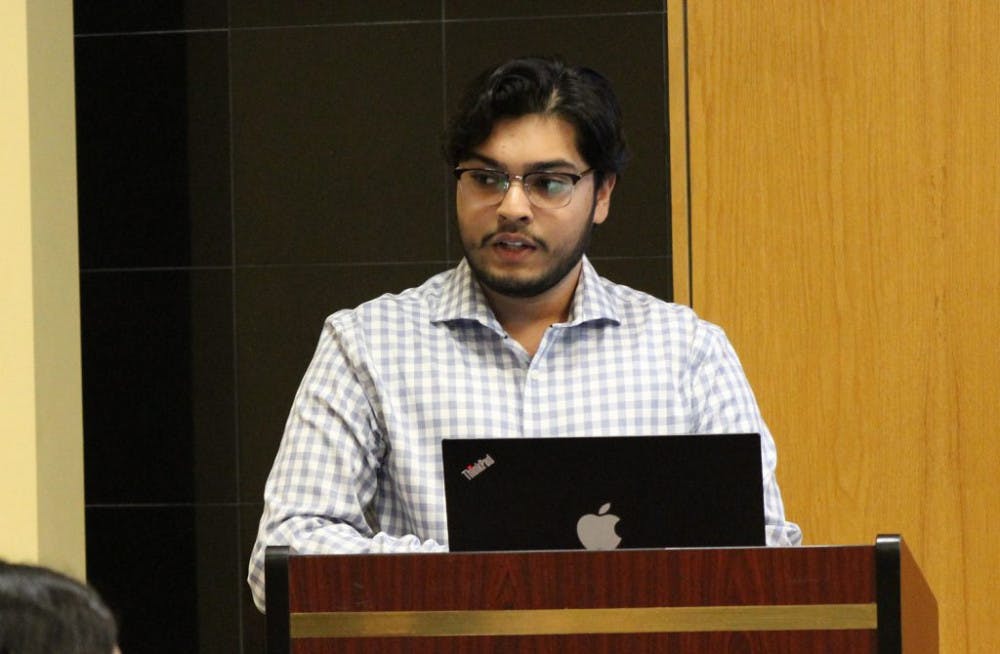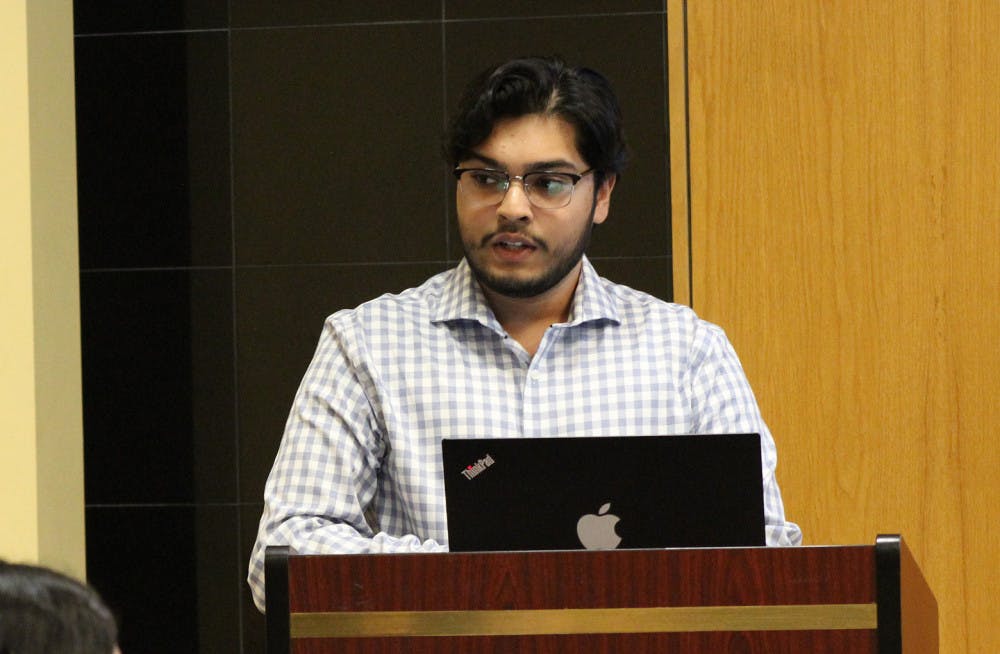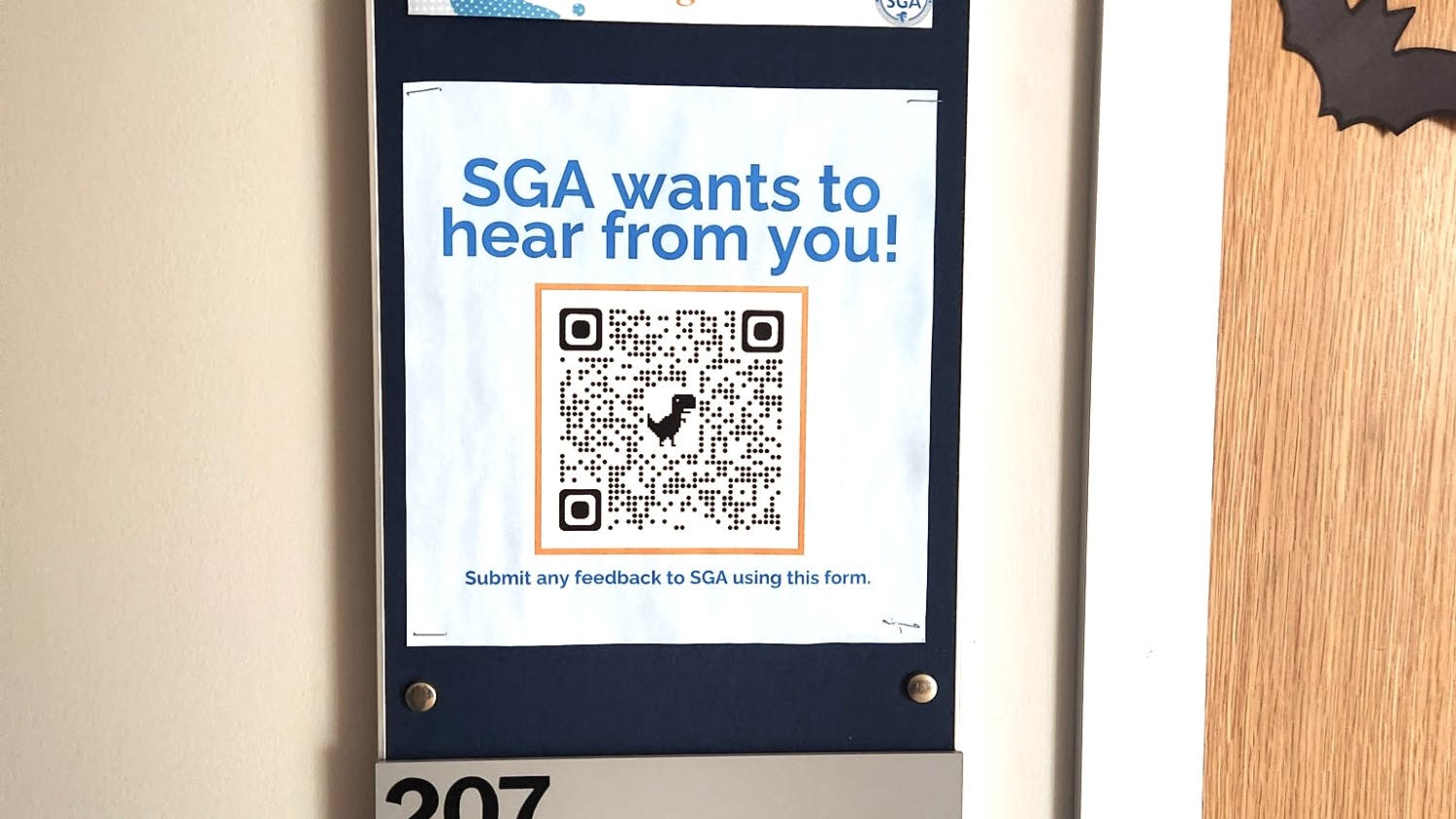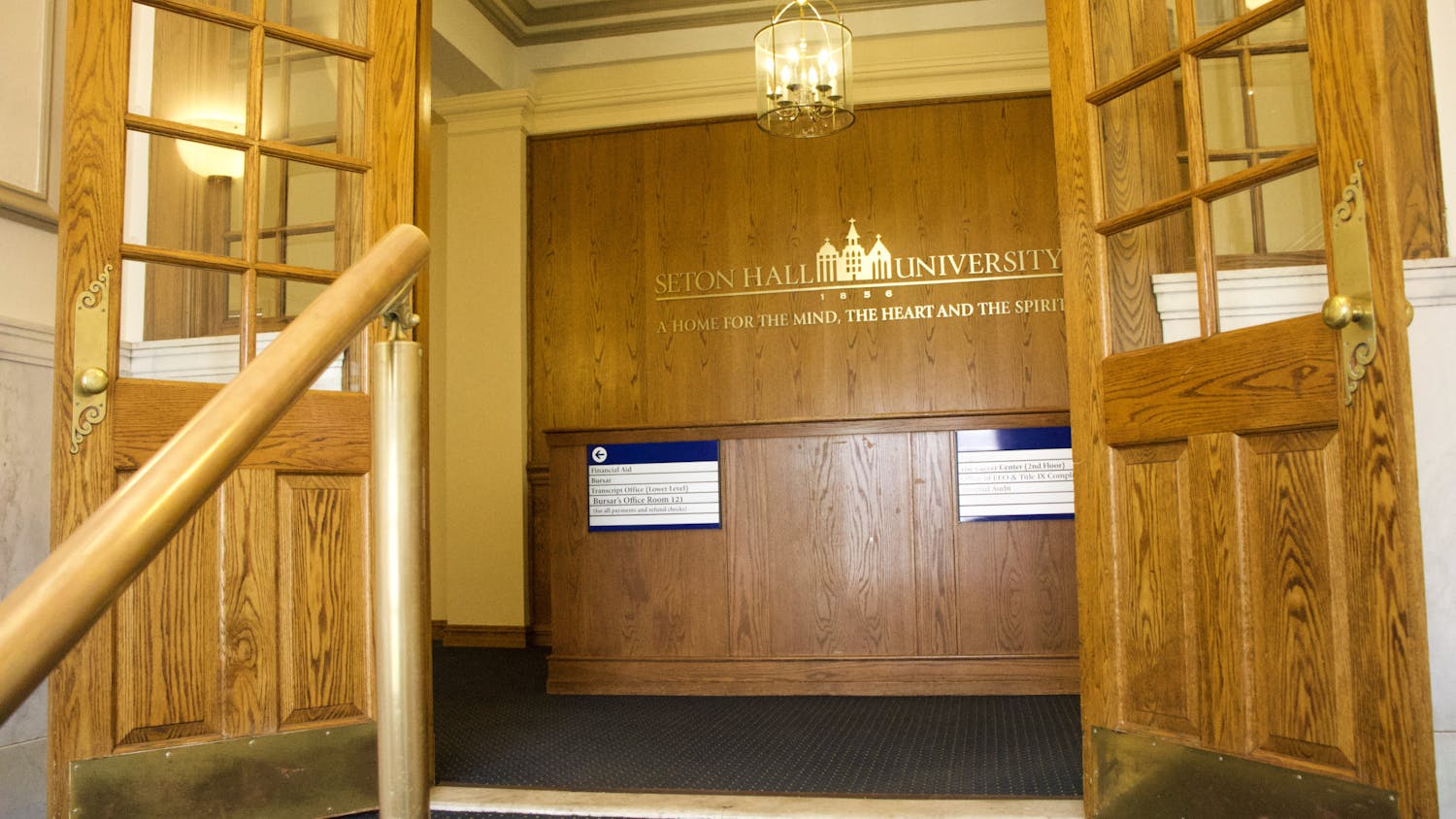A committee has been compiling data on how other schools interact with their governing boards to compare against SHU
Seton Hall University falls behind in student and faculty representation on the Board of Regents, according to a draft report by the Student Government Association (SGA). The draft, written by a group of nine SGA members, including SGA President Rishi Shah, contains data on 18 other universities deemed comparable to Seton Hall based on a combination of religious affiliation, private status, and regionality.

“Seton Hall University, compared to other leading universities in our community, has an opportunity to incorporate shared governance, shared planning, and shared responsibility in the existing structure of the Board of Regents,” read the Executive Statement of the report, coined “The Regents Report.” The document, dated Oct. 28, recommended that Seton Hall’s governing board add a voting student and faculty member to the group.
At Monday’s SGA meeting, SGA Vice President Frank Mabalatan presented a letter from the SGA executive cabinet to the senate in support the report’s goals and findings. The senate is expected to vote next week on whether or not to afford their endorsement to the letter and thereby the findings of the report next Monday.
Even if the report wins the endorsement of the senate there are other hurdles the SGA will need to surmount in order to obtain a seat on the 41-person board. According to Vice President of Student Services Shawna Cooper-Gibson, there would need to be a change in the University bylaws before any student or faculty member could gain representation on the board, noting that “materials would first go to the administration, then to the Committee on Regents, then to the Board of Regents.”
The final proposal would then need the approval of the Board of Trustees, which oversees the Board of Regents, she said.
Obtaining a seat on the Board of Regents was one of the core campaign promises from Shah when he ran for his second term as SGA President last semester and has been a months long ordeal. The Setonian most recently reported in February 2019 that Shah was told by Interim Provost Dr. Karen Boroff that it would not be feasible for a student to have a seat on the Board without a faculty seat as well, something that he has attempted to rectify in his latest push by advocating for a faculty seat, as well.
Most widely known as the group that helps set and vote on tuition increases each year, the Board of Regents is responsible for the corporate management and governance of the University. The board is also empowered to approve and remove the provost, president and other officers of the University as well as approving the tenure of faculty.
According to the report which ranked universities’ engagement with their respective governing boards on a scale of zero to six, Seton Hall currently stands at a zero indicating “no students or faculty engage” with the governing board. Only two universities of the 19, The College of New Jersey and Columbia University, ranked at a six which denotes full voting representation on their governing boards for students and faculty.
Boroff disagreed with the report’s representation of Seton Hall’s students and faculty having no engagement with the Board of Regents saying that in her time at the University she can think of “several occasions in which students and faculty made meaningful contributions at board meetings.”
Shah, who has presented before the Student Affairs Subcommittee of the Board of Regents before, felt differently than Boroff about the matter.
“Engaging means communicating with them on initiatives and you’re working together,” Shah said. “We are there for a fraction of their meeting on a subcommittee that we don’t have any say in. We tell them about what we’re doing, but we don’t actually engage with them.”
The SGA is not the only body involved with pursuing this goal of obtaining increased enagement, either. According to a resolution from the Faculty Senate passed at their Oct. 11 meeting, the faculty “strongly supports the Student Government Association ‘Board of Regents Report,’” and sought to echo the SGA’s goal of obtaining a seat for the two groups.
Curiously, the faculty senate both voted on and saw the SGA report before the entirety of the SGA Senate – something Shah attributed simply to crunched timing.
“The faculty senate endorsed the data that they saw and found it to be reasonable,” Shah said, noting that the Faculty Senate wasn’t voting on the report itself but was rather voting on the message of the report.
Chair of the Faculty Senate Dr. Johnathan Farina echoed Shah’s sentiments when asked why the Faculty Senate voted on the report while it was in draft, saying that he was of the understanding that the SGA Executive Committee was comfortable with the report and that approval from the SGA senate was essentially a “shoe-in.”
“We wanted to make sure that we had time to make a formal statement that we agreed that students and faculty should be on the board in one capacity or another before the Board of Regent’s December meeting. Because of [Dr. Nyre’s] investiture week and other stuff on our docket we wanted to get it done,” Said Farina, “What we were supporting were not any specific nuances to the report, we were supporting the idea that SGA had done valuable research, that their conclusions that students and faculty were not as involved with the board as they should be were just.”
At the last SGA meeting, Shah spoke with The Setonian regarding the status of the report. According to him, the report still stands as is, though he referred to it as a “live document,” indicating that it was still subject to change. One of those changes was the addition of 15 more schools to the research.
“I don’t know why that was requested, but Dean Van Norman and Dr. Cooper-Gibson asked for these 15 additional schools. We’re not sure why, but if that helps us push this through, we’ll do it,” Shah said.
Shah also noted that in his ideal timeline for the roll out of the report he would like to receive time in front of the entire Board of Regents to present his findings, though he added that he felt “that there are some blockades being put up” to prevent SGA from getting in touch with them. As to who was setting up those blockades, Shah said he was not sure.
“I’m just saying that’s just how it feels, I’m not saying that’s what happening,” he said, saying that in meetings he was it wasn’t possible because the agenda points for the Board’s next meeting in December were already set.
Its currently unclear how the newly-installed President Nyre – who sits on the Board of Regents -- feels about the SGA and Faculty Senate’s proposals for seats on the Board, though documentation from the Faculty Senate indicated that Nyre “expressed approval of the idea” in discussions had with Farina. When The Setonian reached out to Nyre, he referred us back to Cooper-Gibson who quoted Nyre’s August email to the University community which read, “Great minds…Civilly engage in shared governance, shared planning and shared responsibility, recognizing that our planning processes (and ultimately our strategic plan) must be rooted in voices from across campus, with special attention to the voices of students, faculty, staff, the priest community and Regents.”
According to Cooper-Gibson, though she has been asked by Nyre to help shepherd The Regents Report through the process of eventually being voted on by the Board of Trustees, it should not be taken as an endorsement of the report from the university and administration.
“Part of our role within Student Services is to assist student leaders navigate University processes. Our goals are for the community’s voices to be heard and to create opportunities for meaningful dialogue,” Cooper-Gibson noted. “Helping student leaders work through a project does not imply support or rejection of a position. We always want to help students think through their project. This is one of the ways we help students to learn and grow.”
Nicholas Kerr can be reached at nicholas.kerr@student.shu.edu. Find him on Twitter @NickKerr99.





